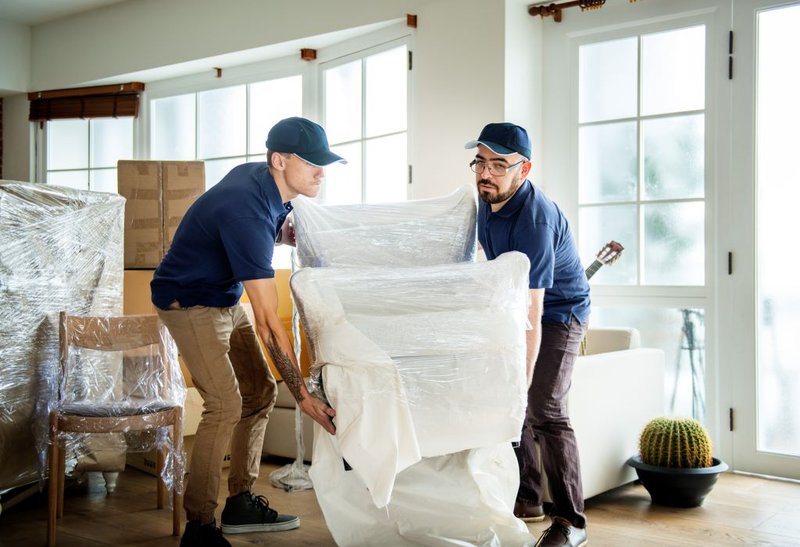10 Tips for Renters Packing and Moving on a Budget

It's happening. One of the biggest most stressful times of your life! Moving is stressful and expensive. You know this. The question is, how to survive it?
Check out these 10 tips that will help you pack and move without breaking the bank or losing your mind!
1. Start collecting packing supplies
If you're a renter, chances are you will eventually need to move. This means that before you start packing up your things, it is important to collect the right supplies.

For example boxes (you'll want plenty of these), bubble wrap and packing paper (to cushion breakables), tape (for securing everything), labels, markers, and pens (to label boxes), and lots of plastic bags or trash bags for clothing items.
Important things to remember about packing supplies; don't wait until the day before the move and source the cheapest supplies possible.
Not waiting until the day before the move is self-explanatory - talk about stress! The last thing you need is to be running around hunting down supplies. Not only will this put your stress level through the roof, nothing will be cheap.
How do you find cheap/free moving supplies? Think outside the box. No pun intended...
- Ask grocery stores and retail stores if they will let you have empty cardboard boxes. Most places usually have containers full of boxes waiting to be picked up for recycling and will gladly let you have as many as you need.
- If you live in a large city, check the night before recycling pickup. Most businesses have stacks of cardboard boxes ready for pick up.
- Before you buy markers, tape, etc., check your supplies. No need in spending extra money buying what you probably already have.
- Ask friends/family members if they have any extras. You may be surprised.
2. Declutter & Donate

While moving can be a stressful experience, it can also be an opportunity to declutter your home. One of the best ways to do this is by getting rid of items you don’t use anymore. The benefits are twofold: you remove clutter from your home and donate clothes, furniture, or other household goods that may be useful to someone else in need.
Not only will you feel better about yourself when you see how much lighter your house feels with fewer possessions weighing it down but you won't be paying to move "stuff."
It's a "win" for all involved.
3. Check Prices on Movers

It's decision time! Do you move yourself or do you pay movers? The answer isn't as clear-cut as you may think. You should carefully weigh the pros and cons of both options before making a decision that will affect your wallet in more ways than one.
With "moving companies" you have two main options; big-name professional moving companies or local moving businesses. Hint: Big-name moving companies are more dependable, but much less affordable.
When calling local moving businesses, be sure and ask:
- Are they available on your chosen moving date?
- Do they provide a list of services? Don't assume anything.
- Do they provide a written agreement of provided services?
- What is the total cost of their services?
- How long will the move take?
4. Compare Prices on Renting a Truck

Before you book that moving company, consider moving yourself.
Moving yourself is hard work but it can be cheaper depending on how much stuff you have to move, where you're moving, etc.
Check prices on renting a moving truck from places such as U-Haul, Budget Truck, Penske Truck Rental, etc. A quick search online will give you a list of who rents trucks in your area.
Also, consider using apps such as "Truck Share." Truck share apps help renters connect with drivers who have large trucks or vans and are willing to rent them out by the hour. You can search around your area using their map feature, see how much you'll need to pay, and book a truck through the app.
5. Consider Your Move Date
Did you know that you can reduce your moving cost by choosing less busy days? There are many movers and moving truck companies out there that charge less on weekdays for their services. If you're in a hurry to move and don't want to wait around for the next available weekend day, then consider renting trucks or hiring movers with weekday availability.
Using a couple of vacation days just might help you save big on moving day.
6. Create a Packing List

There's a sense of excitement in the air, but also anxiety--what do you need to pack? Where will it go when you arrive at your new place? How will everything fit in the car or van?
Making a packing list will take that stress away.
The first thing on this list is packing lists themselves. Start now on your packing lists. Write things down or make a list on your phone as they pop into your mind and before you forget something important later on.
A good order to start packing is:
- Pack the items in the rooms/areas you use the least (guest room, junk room, basement, attic, etc.)
- Decorative items.
- Seasonal decorations.
- Books, craft supplies, extra office supplies.
- Non-essential bathroom items.
- Non-essential kitchen items.
- Extra linens and bedding.
- Anything you don't need on a daily basis.
7. Pack as Much as You Can Before the Move

One of the absolute worst things you can do is wait until the last minute. Yes, you're busy. But heed this warning; now is the time to eliminate unnecessary activities and even forego some fun times with friends and get your packing done ahead of time.
You'll be so happy you made the sacrifice later.
Weeks ahead of moving day, start following your packing lists and get that packing done. Do your packing in daily, "bite-size" amounts.
And...be sure to label boxes. As stressful as moving can be, it's even more stressful to get to your new home and not be able to find anything.
Label.
Your.
Boxes.
8. Repurpose Household Items as Packing Supplies
Did you know you can save a lot of money on packing supplies such as bubble wrap and paper by repurposing some of your household items?
Yep. You can.
As you're packing all your glassware, dishes, and any decorative fragile items, use what you already have (and also need to pack.) Use bath, hand, and dish towels to separate dishes and cookware.
Surround delicate items with sheets, placemats, etc.
9. Organize Free Help

Moving doesn't have to be expensive. You can save money by rounding up all the friends and family you know, inviting them to help with the move. Call friends and family before the big day and see who's available. Let them know they'll be rewarded with plenty of free pizza.
10. Take Care of the Necessities

As if you haven't done enough work, one thing you can't forget is all of the necessities. That means changing your address with banks and other companies, canceling utilities, buying renters insurance (you can find some help from SafeButler, of course!), and so on. It may seem like a pain, but it will save you a lot of headaches in the long run.
Moving day can be a huge headache, but it doesn't have to be. Make it easier on yourself by following these 10 tips for packing and moving on a budget. You’ll save you time, money, and stress.
Find your perfect insurance policy
Compare the top insurance brands at once for free


